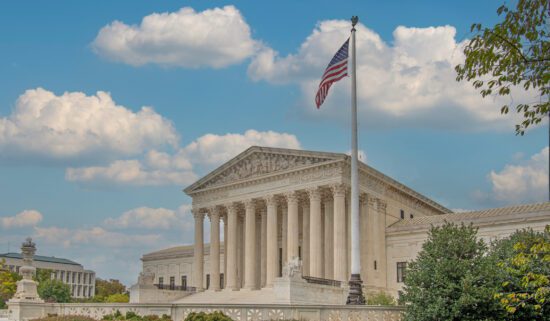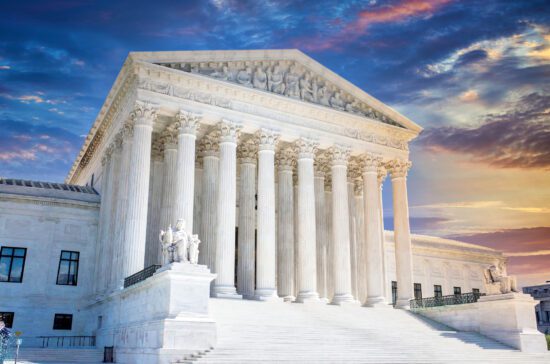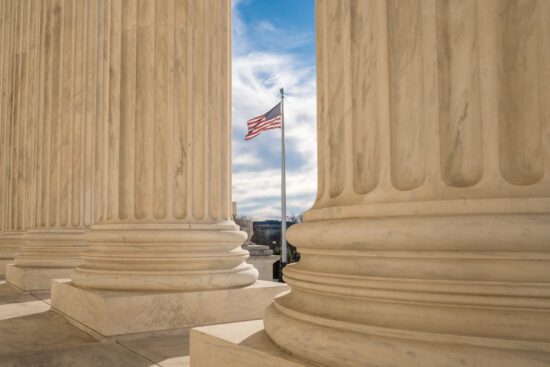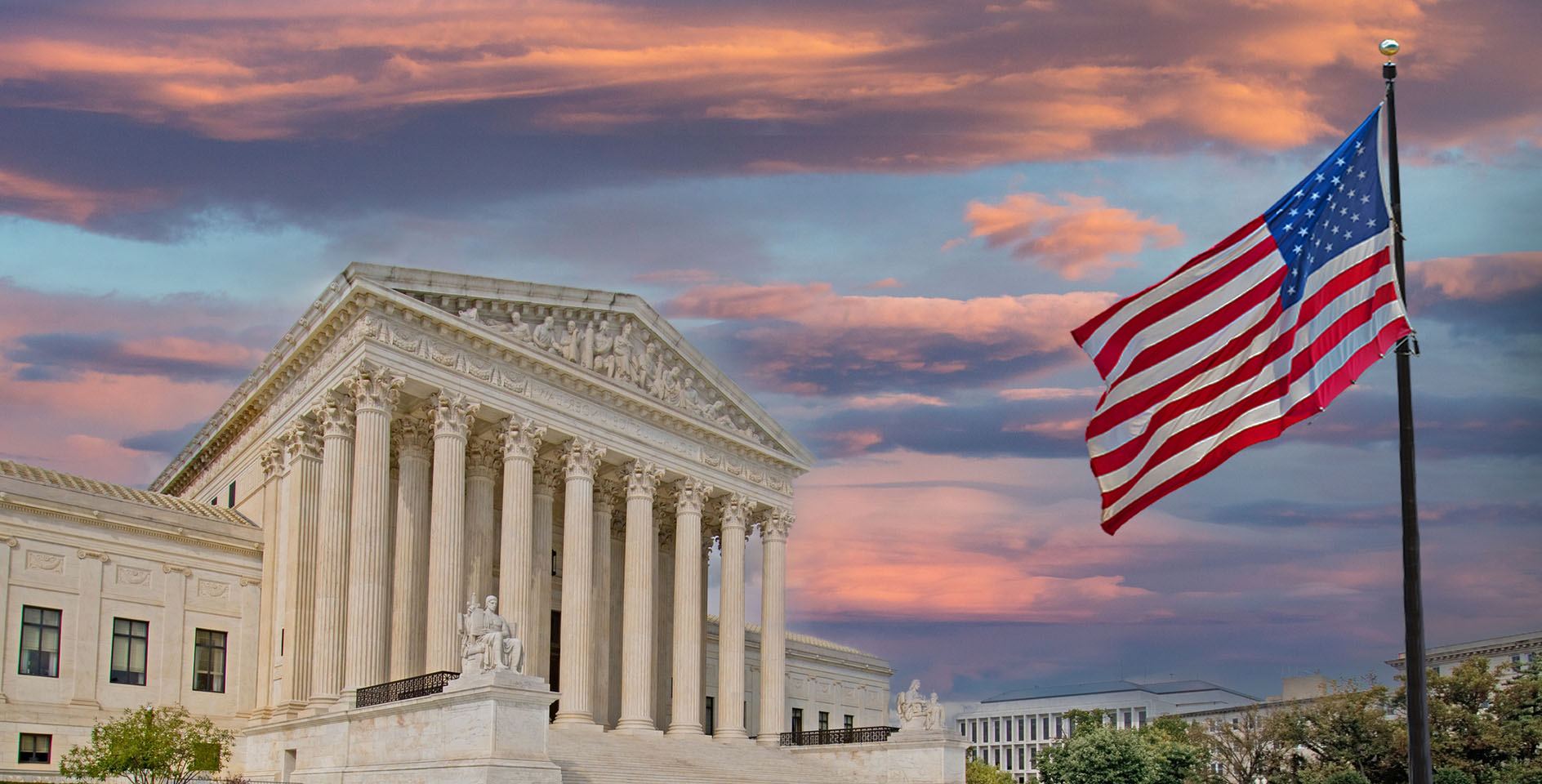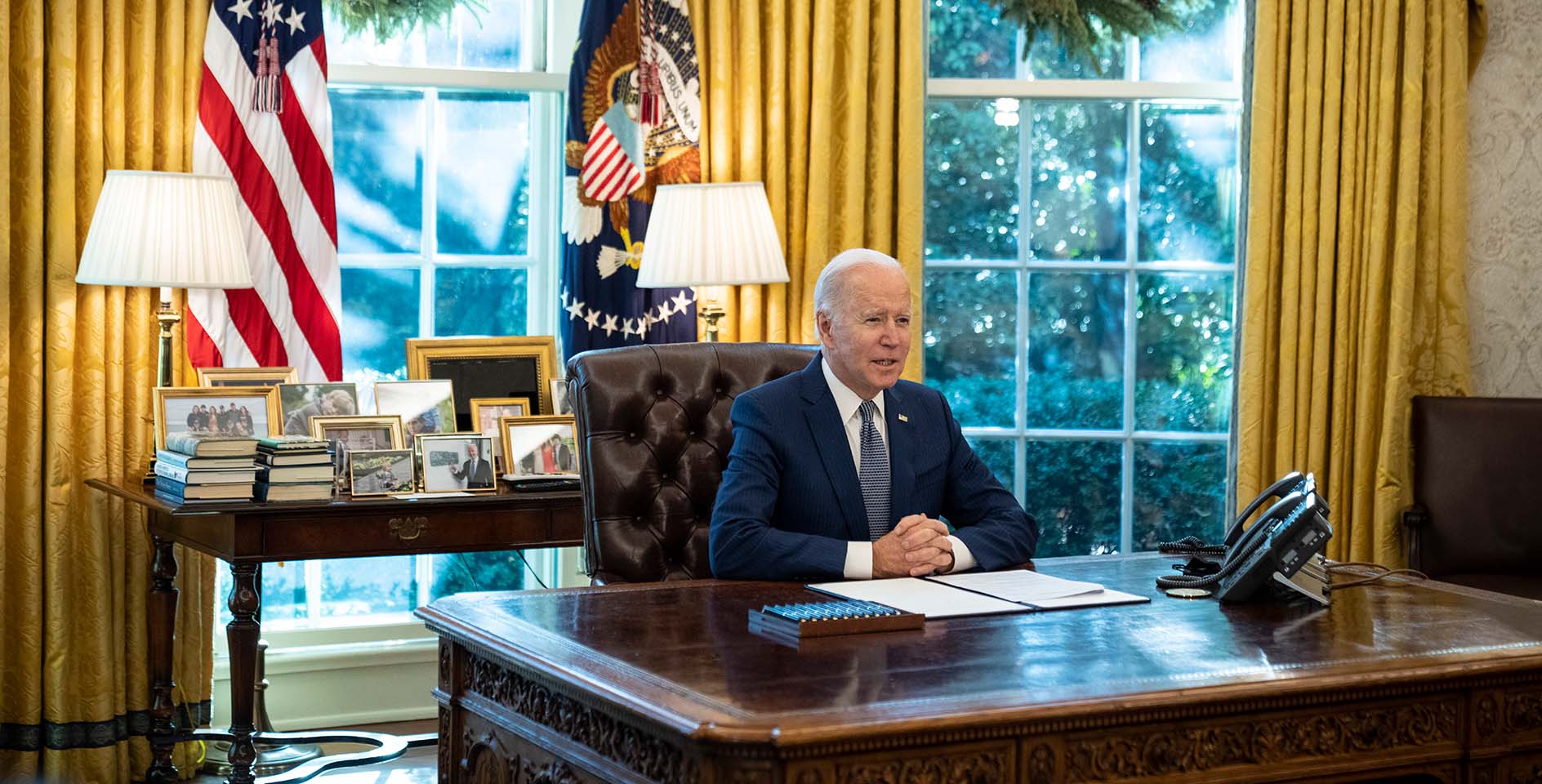The First Amendment to the United States Constitution provides, in part, that “Congress shall make no law respecting an establishment of religion.” This provision is known in shorthand as the Establishment Clause. The United States Supreme Court recently decided the case of Town of Greece v. Galloway, a case in which the Court considered whether a municipality that opens its monthly board meetings with a prayer violates the Establishment Clause. In a 5-4 decision, the Supreme Court held that such a prayer is not an unconstitutional establishment of religion.
Following that decision, Bart Barber published an article entitled “A Rebuttal to Justice Thomas in the Greece Case.” Although he expressed agreement with the Court’s decision, Mr. Barber also voiced some concerns with Justice Clarence Thomas’ concurring opinion in the case. In Justice Thomas’ view, the Establishment Clause only applies to the Federal government. Since the town of Greece was a New York State municipality and not an arm of the Federal government, Justice Thomas concluded that the prayers before the Town of Greece’s monthly board meetings were not an unconstitutional establishment of religion.
Mr. Barber contended that Justice Thomas’ opinion was so “startling and dangerous” that it “should alarm almost any citizen of this country.” He focused his critique on Justice Thomas’ opinion that the Establishment Clause does not operate to restrict State or municipal government action. Mr. Barber’s concerns can be summarized by the following passage in his article:
If the Establishment Clause only applies to the federal government, then Dearborn, Michigan, would be entirely within the law to declare itself an Islamic city so long as it still permitted Christians or Jews to worship freely within the city limits. Utah could establish Mormonism, Puerto Rico could establish Roman Catholicism, and Las Vegas could build a municipal shrine to Aphrodite.
I have to disagree with Mr. Barber’s assessment. To see why, it will be helpful to begin with a basic observation. I detect in the above passage an assumption that goes something like this: if something is not prohibited by the Federal Constitution, it is therefore lawful. Take, for example, Mr. Barber’s Dearborn, Michigan, hypothetical. Mr. Barber maintains that if the Establishment Clause only applies to the Federal government, then it would be lawful for Dearborn, Michigan, to establish itself as an Islamic city. But this argument has no force unless the assumption I have identified is true.
My problem with this assumption is that it is not true. It would, of course, be accurate to say that if the Establishment Clause applies only to the Federal government, then it would not be a violation of the Federal Constitution for Dearborn, Michigan, to establish itself as an Islamic city. But that is not the same thing as saying it would be lawfulfor it to do so. This distinction, while perhaps subtle, is nevertheless quite important.
Contrary to Mr. Barber’s assertion, even if the Establishment Clause only applies to the Federal government, it would still be unlawful for Dearborn, Michigan, to establish itself as an Islamic city because Article I, Section 4 of Michigan’s State Constitution would forbid such an attempt. So, if the Supreme Court were to adopt Justice Thomas’ view of the Establishment Clause, it would still be unlawful for Dearborn, Michigan, to establish itself as an Islamic state.
But Michigan is not an anomaly among the hypotheticals that Mr. Barber urges should cause alarm. In fact, every single example he provided would, in all likelihood, have the exact same outcome as the Dearborn, Michigan, example. Article I, Section 4 of Utah’s State Constitution provides that “[t]he State shall make no law respecting an establishment of religion,” and thus Utah could not lawfully establish a state religion of Mormonism. Article II, Section 3 of Puerto Rico’s Constitution provides that “[n]o law shall be made respecting an establishment of religion,” so Roman Catholicism could not lawfully become an established religion there. And while Nevada’s State Constitution does not contain explicit language forbidding the establishment of religion, it does protect the “free exercise and enjoyment of religious profession and worship without discrimination or preference.” A federal court recently concluded that this language prohibits Nevada from establishing a State religion.
So it would be inaccurate to say that if something is not prohibited by the Federal Constitution, it is therefore lawful. Indeed, rather than demonstrating that Justice Thomas’ view is startling and dangerous, I think these examples instead serve to underscore an important fundamental point: the States are at least as capable of protecting religious liberty and freedom as is the Federal government. And that is why I think that Mr. Barber’s concerns with Justice Thomas’ opinion are unfounded.
Mr. Barber also appears to disagree with Justice Thomas for another reason. According to Mr. Barber, Justice Thomas “erred in his understanding of the historical record” by failing to recognize precisely how the legal landscape changed when the Fourteenth Amendment was adopted in 1868. Although it is true that, prior to the Fourteenth Amendment, the Bill of Rights did not apply to State or local governments, Mr. Barber maintains that “[i]t is the very heart of the Fourteenth Amendment to take that which had not applied to the states before and to apply it to them henceforth.” For this reason, according to Mr. Barber, Justice Thomas is simply wrong that the Establishment Clause does not apply to State and municipal governments.
Mr. Barber did not really offer any reasons supporting his claim that “[i]t is the very heart of the Fourteenth Amendment to take that which had not applied to the states before and to apply it to them henceforth.” If I am reading him right, what he means is that one of the core purposes of the Fourteenth Amendment was to apply the Bill of Rights against the States, and that this is such an obvious point that there is no room for argument. Thus, Justice Thomas is simply wrong to say that the Establishment Clause, which is part of the Bill of Rights, does not apply to the States.
In actuality, whether, and exactly how, the Fourteenth Amendment made the Bill of Rights enforceable against the States has been a highly debated question in Constitutional law. There is no need to recite the particulars of that debate here. Suffice it to say that the Supreme Court has never embraced the view that the Fourteenth Amendment applies the entire Bill of Rights against the States. The Supreme Court has, however, applied selective aspects of the Bill of Rights against the States, but it has also stated that other aspects of the Bill of Rights do not apply against the States.
This particular debate over the meaning of the Fourteenth Amendment and the Bill of Rights is not merely ancient or academic in nature; rather, it is still ongoing. In fact, the Supreme Court considered this exact issue in 2010 in the context of the Second Amendment, which, of course, is in the Bill of Rights. In 2010, the Supreme Court decided the case of McDonald v. Chicago, in which the Court considered—for the very first time—whether the Fourteenth Amendment made the Second Amendment enforceable against the States. In a 5-4 decision, the Supreme Court decided that it did.
The point is this: if nearly 142 years after the Fourteenth Amendment was adopted the Supreme Court considered whether aspects of the Bill of Rights apply against the States; and if four Supreme Court justices in that case argued that the Second Amendment does not apply against the States; then I do not think one can, with a high degree of confidence, assert that the heart of the Fourteenth Amendment was to apply the Bill of Rights against the States. At least not without providing some very good reasons to support the veracity of that claim. So, rather than objectively misreading history, it would appear that Justice Thomas is actually on sound analytical footing with his view that the Fourteenth Amendment does not apply the Establishment Clause against the States.
What we have seen is that Justice Thomas views the Establishment Clause as a federalism provision—a provision designed to restrict Federal but not State or local government action. Mr. Barber has argued that this is a view that is “startling and dangerous” because leaving the States free to decide matters of religious establishment poses a significant threat to religious liberty. I would like to briefly posit an alternative possibility. Rather than being a danger to religious liberty, could it not be the case that leaving the States free to decide matters of religious establishment might actually provide greater security for religious liberty, and that applying the Establishment Clause to the States might actually reduce the protection of religious liberty? Consider Town of Greece again with these questions in mind.
Mr. Barber expressed agreement with the Supreme Court’s decision in this case, which was that it is not an unconstitutional establishment of religion for a municipality to open its monthly board meetings with a prayer. As I noted above, Town of Greece was a 5-4 decision. That means that the Town of Greece was one vote away from having that practice invalidated by the Supreme Court. And what would have been the consequence had it lost? The Town of Greece, and indeed every municipality in the entire United States, would have been forever forbidden from opening their board meetings with a prayer unless the Supreme Court reversed its own precedent in a future case, or a new Amendment to the Federal Constitution was enacted.
Now, it is important to understand that the close nature of this case is a direct result of the view that the Establishment Clause applies against the States. How would this case have turned out if the Court adopted Justice Thomas’ view that the Establishment Clause does not apply to State or municipal government action? The Town of Greece, without any question, would have prevailed in a unanimous decision. In fact, if the Court had previously adopted Justice Thomas’ view, this case would have never even been heard at the Supreme Court.
But, of course, it might have been heard in New York’s State courts, which might well have invalidated the Town of Greece’s practice of opening its monthly board meetings with a prayer based upon New York State law. And what would have been the consequence? The Town of Greece, indeed every municipality in New York, would be forever forbidden from opening its board meetings with a prayer unless the New York courts reversed their own precedent in a future case, or a new Amendment to New York’s State Constitution was enacted.
So let us assume that it is a matter of religious liberty for a municipality to open its board meetings with a prayer. Under Mr. Barber’s view that the Establishment Clause applies against the States, the ultimate decision of whether that practice constitutes an impermissible establishment of religion rests solely with five justices on the United States Supreme Court. When that Court makes a decision, it applies to every State and municipality in the United States, and if one happens to disagree with it, he must wait for the Supreme Court to reverse itself, or else the United States Constitution must be amended. Neither of these scenarios happen with regularity.
On the other hand, under Justice Thomas’ view that the Establishment Clause does not apply to the States, the ultimate decision of whether a practice constitutes an impermissible establishment of religion rests solely with the State authorities. The true implication of this view is that the decisions that municipalities in New York make regarding prayer at their board meetings have absolutely no impact on what the municipalities in Texas decide to do on that same question. And since State constitutions are far easier to change than is the Federal Constitution, Justice Thomas’ view makes it far easier for the citizens in New York to protect their decision to allow prayer at town meetings should they desire to do so.
In sum, what I have attempted to demonstrate here is that federalism, rather than being a dangerous mechanism employed to restrict and infringe upon religious liberty, is actually designed to be an instrument to protect and secure religious liberty. So, Justice Thomas’ view that the Establishment Clause is a federalism provision, far from being a dangerous and alarming view, might actually provide for a stronger protection of religious liberty than Mr. Barber’s view that the Establishment Clause applies to the States.




